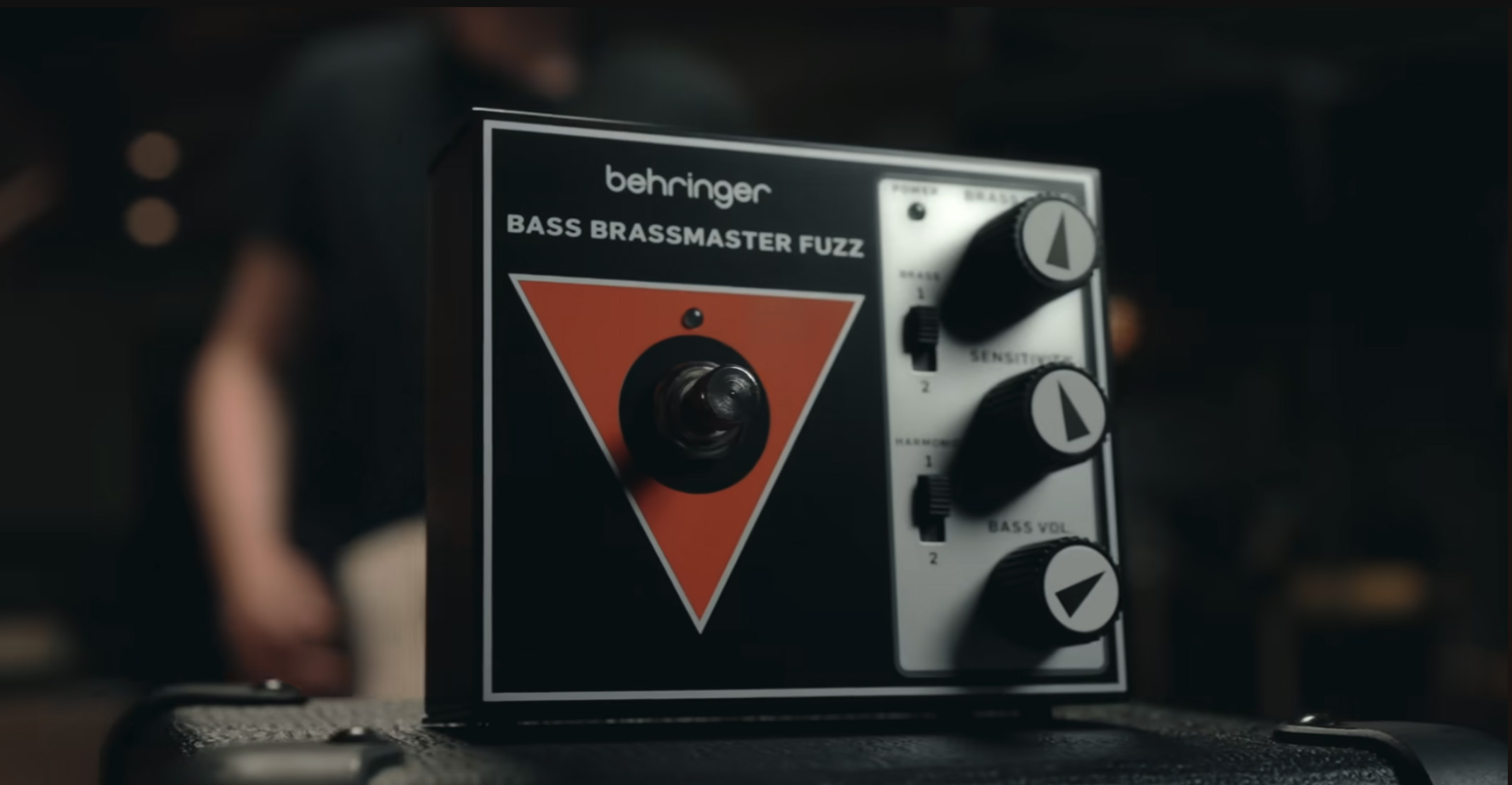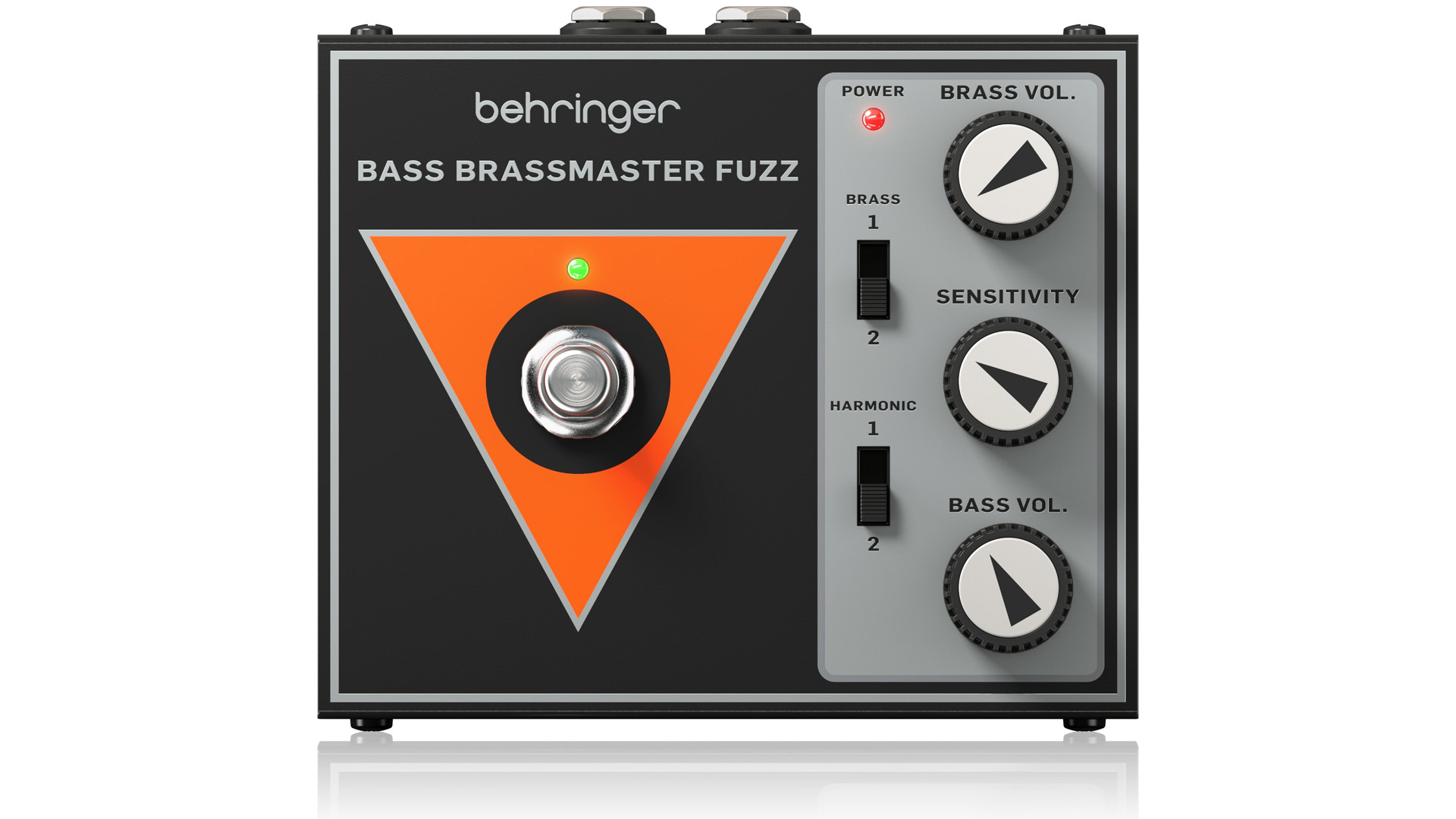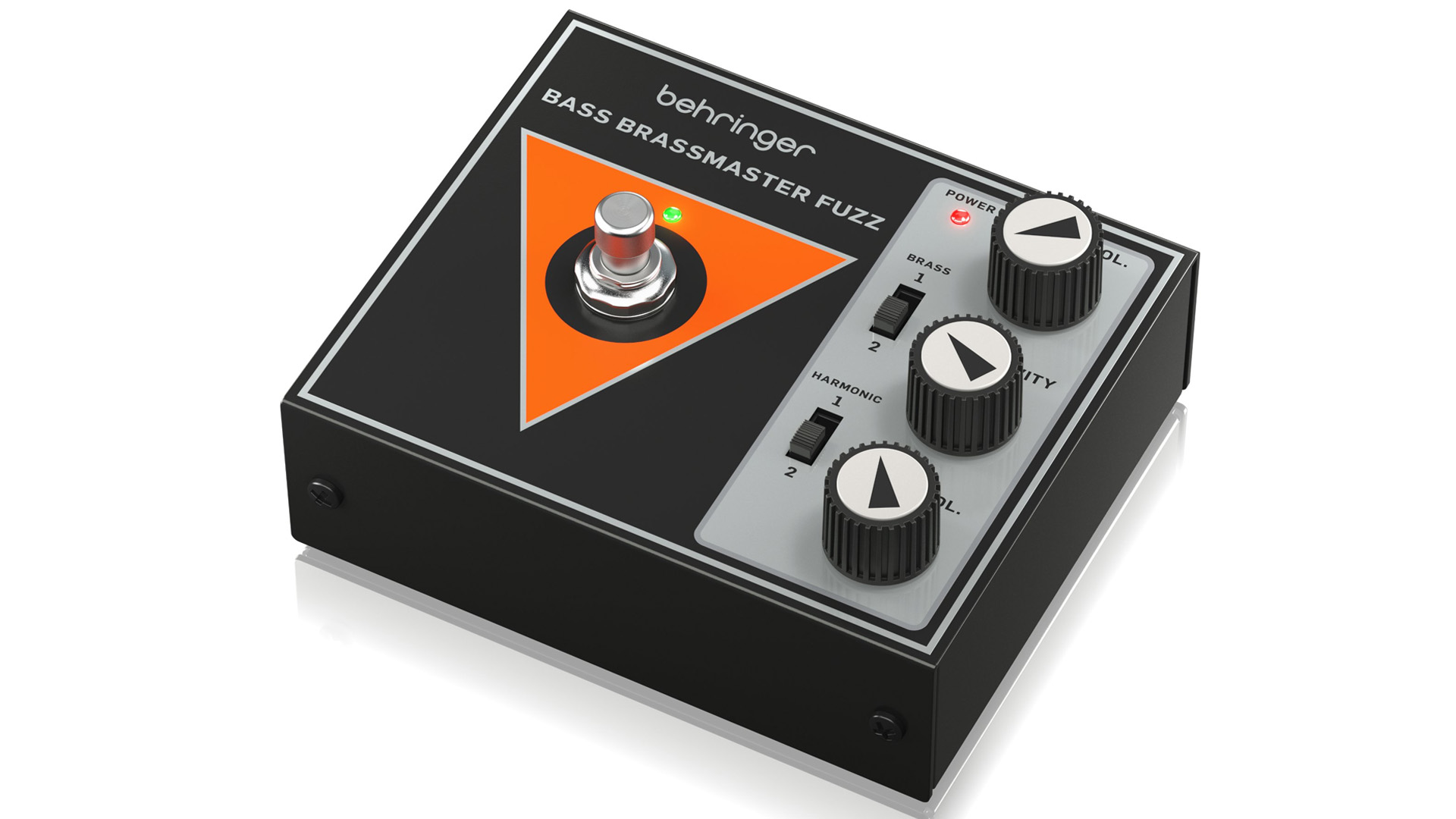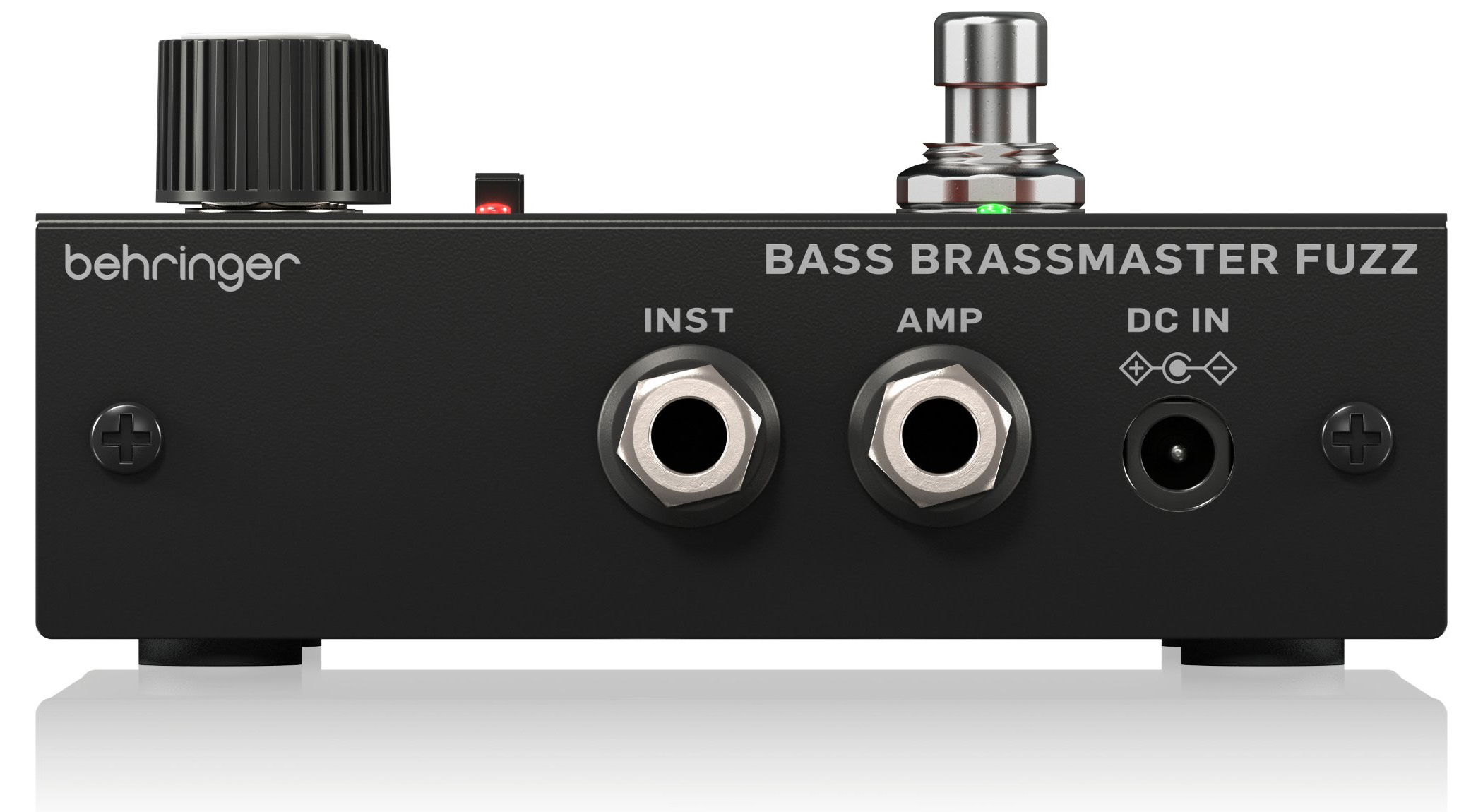
fBehringer has launched another super-affordable clone of a holy grail vintage stompbox, this time recreating the legendary Maestro BB-1 Bass Brassmaster for the princely sum of $69. And this repro, the Bass Brassmaster Fuzz, is a dead ringer for the original fuzz pedal.
Dead ringer? No pun intended. That could describe the effect itself, an octave fuzz, originally voiced for bass guitar but a circuit that does some magical things to electric guitar too. The BB-1 was nasty, weird, brilliant, a threat to your amp’s speaker cone and a radical thing to expose your bass signal to. The Bass Brassmaster Fuzz recreates all this.
Even on paper, the circuit sounds nuts. This is an octave bass fuzz with an onboard dual-voice ring modulator, opening up a full spectrum of harmonically unorthodox overtones.
There pedal has three knobs and two slider switches. The Sensitivity knob dials in how much fuzz is applied to your signal. The Brass knob controls the level of the fuzz. The most important control is the Bass Volume control, because controls the wet/dry blend, allowing you to keep as much of your clean signal as you like, giving you the option of having full-on chaos but clarity too.

The Brass slider switch toggles between two voicings, with the second packing more midrange, which could be in invaluable when trying to make yourself heard in a mix.
The Harmonic switch selects your filter, toggling between high-end harmonic content and low-end. It’s this sort of tweakability that makes it work whether your playing bass or guitar, rhythm or lead.
Behringer is often known for its use of plastic housings but these vintage reproductions have them reverting to heavy duty metal enclosures. The connections can all be found on the top of the unit. The Bass Brassmaster Fuzz takes 9V from a DC pedalboard power supply and is true bypass.


It follows a busy period for Behringer with the company recently launching a the Centaur Overdrive, a $69 clone of the Klon Centaur overdrive, and the ’69 Vibe, a similarly priced clone of the Shin-Ei Uni-Vibe. And it’s not just guitars.
Only yesterday it launched the JT Mini, a $99 analogue synthesizer inspired by the Roland Jupiter-8, and the company has been in bullish form, calling out its critics who have accused it of being “a vaporware company”, in other words announcing products but not releasing them.
It wouldn’t be the first company in recent years to suffer from chip shortages that have affected synth producers worldwide, but Behringer says it is just getting started.
“Behringer – the ‘Vaporware Company’? Maybe. But only if vaporware means delivering more music-making tools than anyone else,” read a statement on Instagram. “Stay tuned. The journey has just begun!"
For more details, head over to Behringer.







